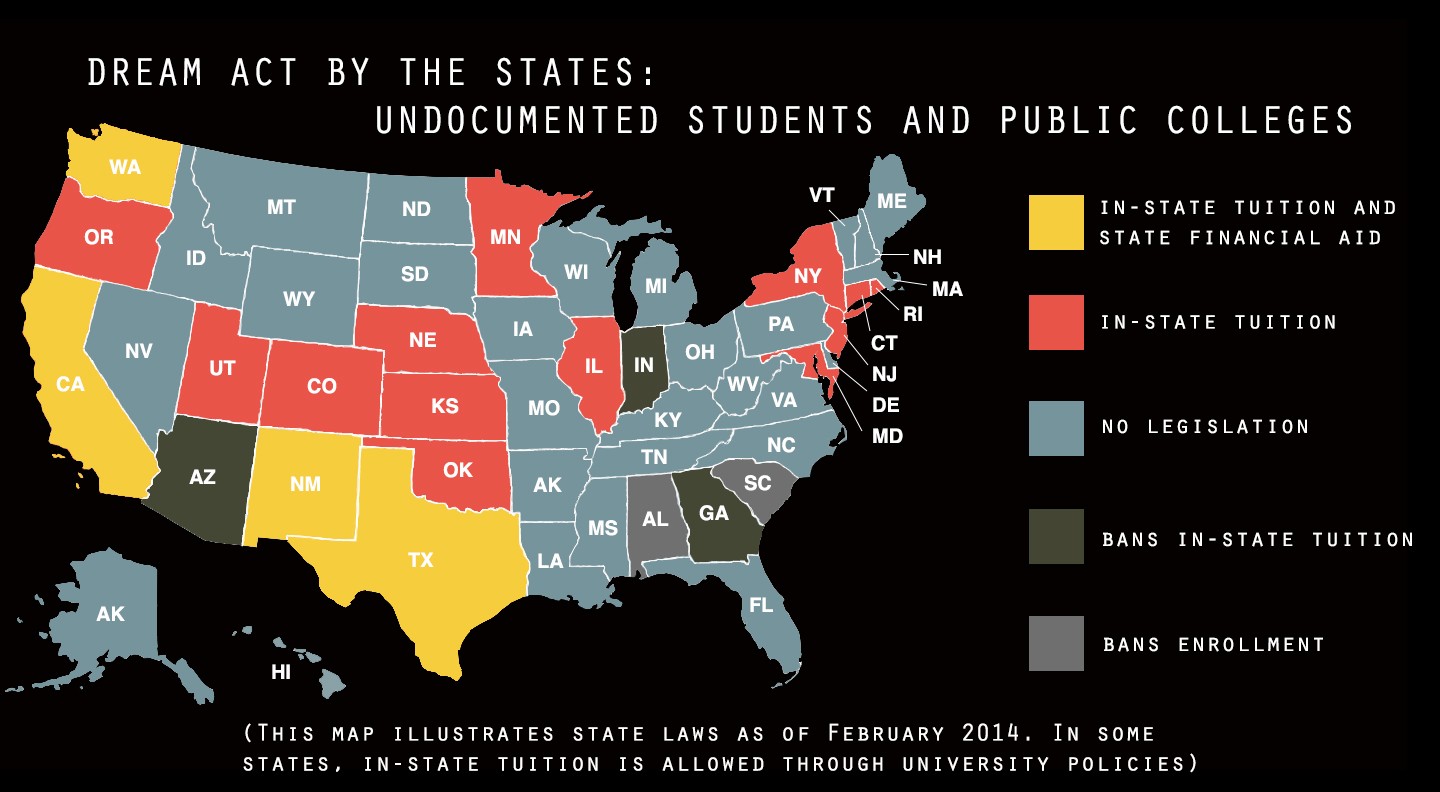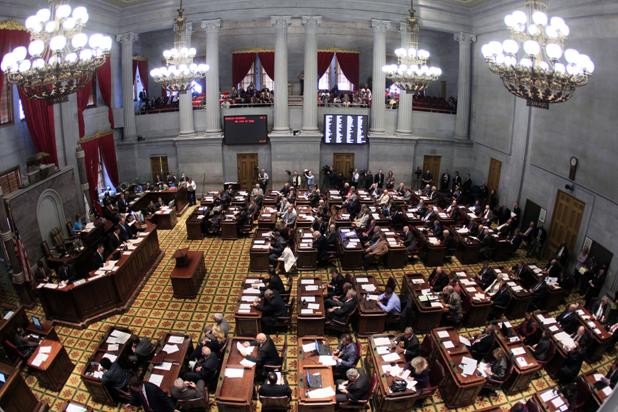
Tennessee had the opportunity, on April 22nd, to join 22 forward-looking states by passing tuition equity, which would have benefited thousands of young people across the state. But a mysterious outbreak of myopia in the House chamber, moments before the bill came up for vote, defeated a nicely crafted Senate-passed bill that had strong support from Tennessee youth, educators, and immigrant-rights advocates.
The legislative push to secure tuition equity — which would have allowed in-state university tuition for undocumented youth — has been arduous. Legislators in Nashville have struggled to understand the ramifications of tuition equity in the context of stalled national immigration reform.
Ironically, the bill’s origin and defeat can be traced indirectly to persistent federal inaction on immigration policy.
Five years ago, the U.S. Senate voted down the “Dream Act,” a bill that would have created a path to residency and citizenship for undocumented youth in the U.S. The Senate’s failure to act essentially denied hundreds of thousands of teenagers the chance to pursue education beyond 12th grade. These youths were effectively assigned to the class of low-wage workers living in the U.S.A.
In response to congressional failure, President Obama signed the Deferred Action for Childhood Arrivals (DACA) executive order in 2012. The order allows childhood arrivals who are pursuing or who have obtained a high school diploma to earn a temporary, renewable two-year immigration status. This frees these folks from fear of deportation and allows them to work and study legally in the U.S.
Some states, as a result of congressional inaction, have cobbled together legislation — sometimes called tuition equity — designed to support young people who hope to earn college degrees and embrace the American dream. Tuition equity can come in a variety of forms but generally means offering in-state tuition rates for undocumented youth who reside in the state and have graduated from the state’s high schools.
The Republican-controlled Tennessee state legislature came close to passing tuition equity in last week’s general session. The Senate recently passed it by a vote of 21-12. The House vote, 49-47, fell one vote short of a constitutional majority (50 votes) needed for passage. This vote divided the Republican ranks. For example, Beth Harwell (R-Nashville) did not vote but claims she would have voted against the bill because, to her, the bill represents a “slippery slope.”
We’re not sure which slope she’s sliding down, but opening up opportunity for more young people, as many as 25,000, to study at our state-supported universities seems more like a step-up. Her lack of leadership on this important initiative is worse than her uninspiring metaphors.
Others have led with conviction and grace: Carla Chávez spoke on April 7th before the Education Administration and Planning Committee. The young woman told of arriving in the U.S. at 5 years old with her parents. She never knew she was “undocumented” until it came time to apply to college. Carla graduated from McGavock High School in Nashville and gained eligibility to work with a work permit, as authorized through DACA. She worked at internships and studied on the side, preparing for college during her free time in the hopes that tuition equity would, one day, pass in Tennessee.
Chávez’s powerful statement had a therapeutic effect on some of our representatives. Kent Calfee (R-Kingston) described the moment as “an epiphany” because he was set to vote against the bill, but was swayed by Chávez.
Representative Johnnie Turner (D-Memphis) invoked the civil rights struggle during a moving, passionate speech.
Representative Mark White (R- Memphis) sponsored and shepherded the bill that ultimately fell short. He deserves credit for recognizing the moral imperative behind this legislation and the positive impact it would have in Tennessee. Last year, this same bill bitterly divided the state legislature and never made it out of committee. This year, a broad coalition led by the Tennessee Immigrant and Refugee Rights Coalition (TIRRC), Latino Memphis, Inc., and hundreds of students organized a bold campaign that, while not managing to provoke new legislation, still made significant progress.
In these times of seemingly interminable partisan bickering, we need a state legislature that leads and helps us all look to our better angels. Offering young people the opportunity to take command of their lives through education, dedication, and focused work is the right policy option for Tennessee. We hope the myopia recedes, just a little bit, in the next legislative session.
